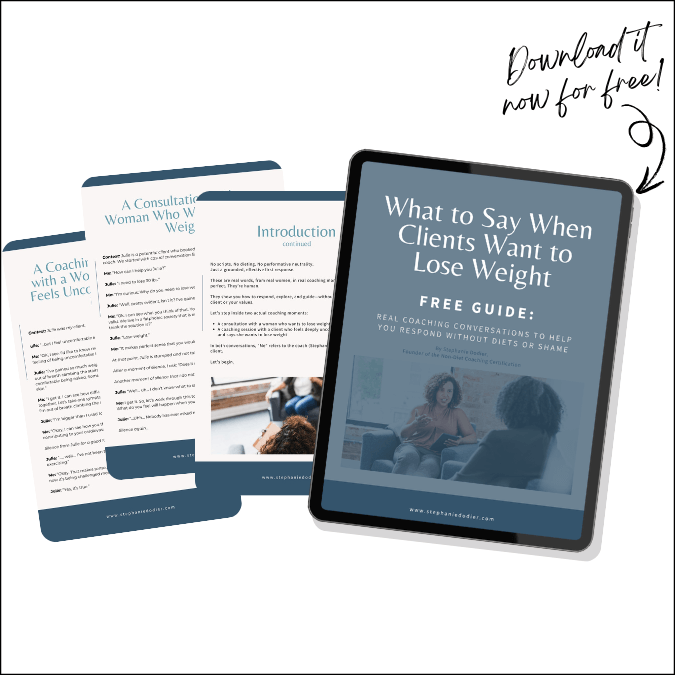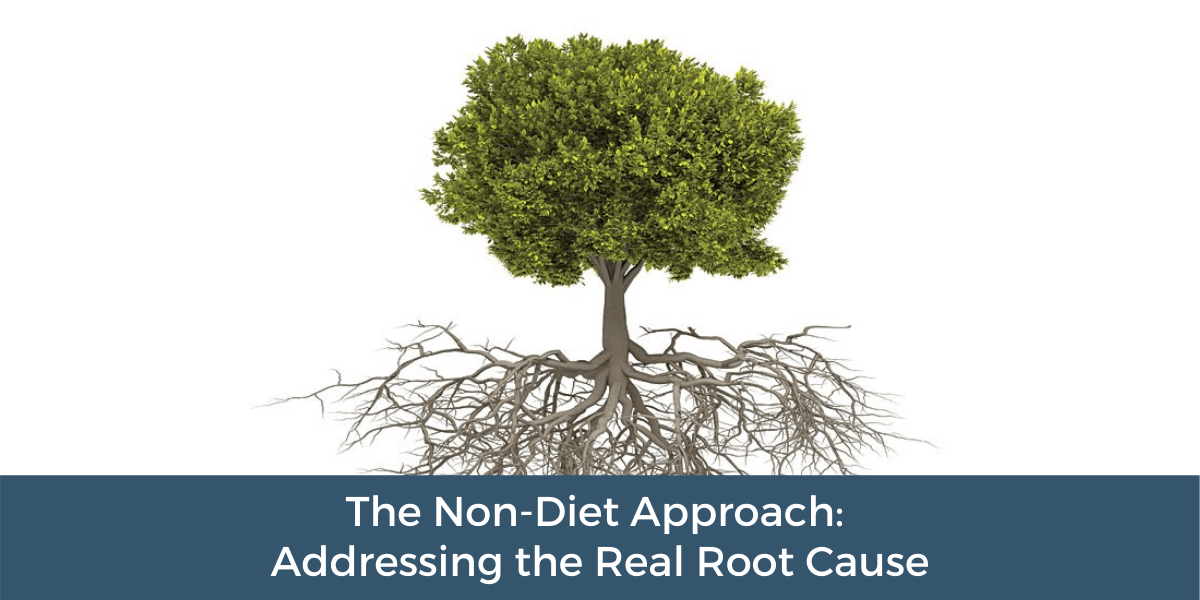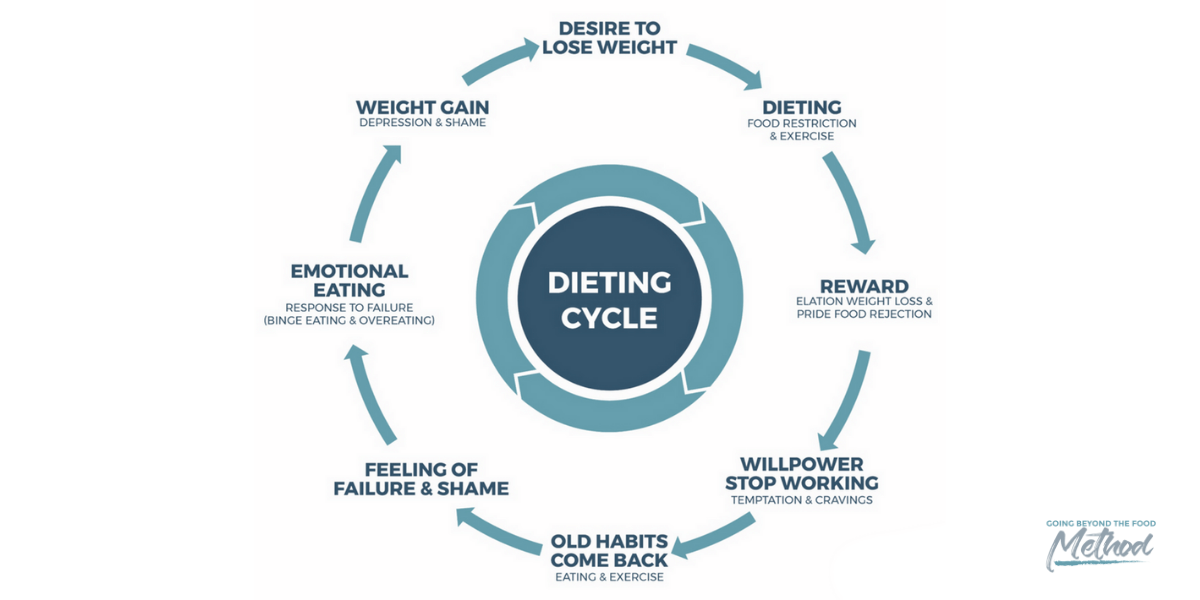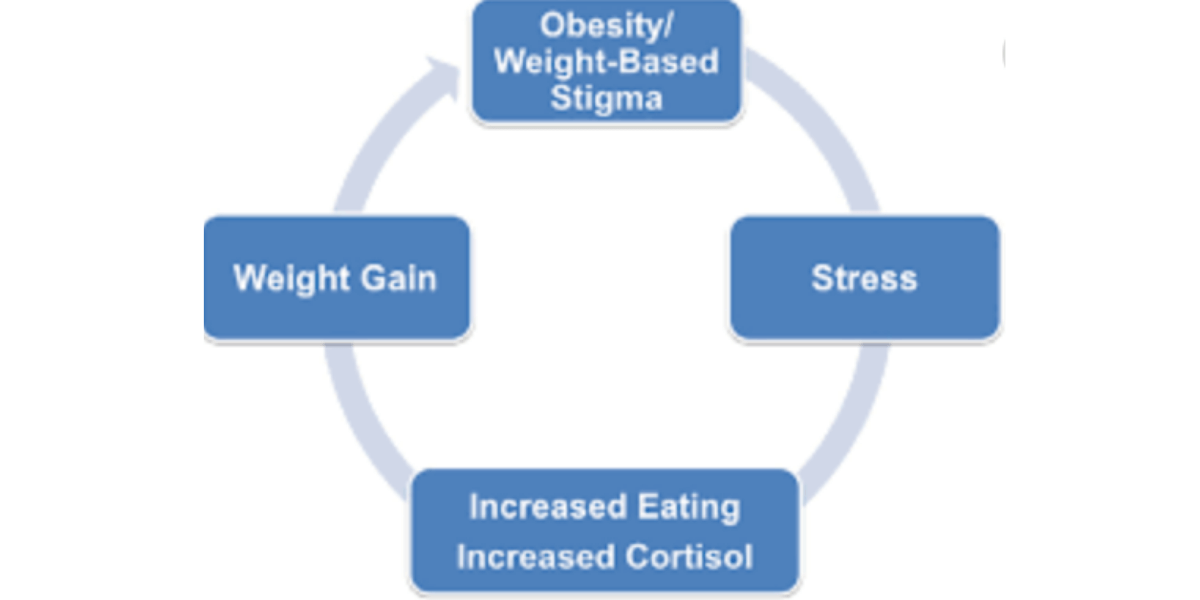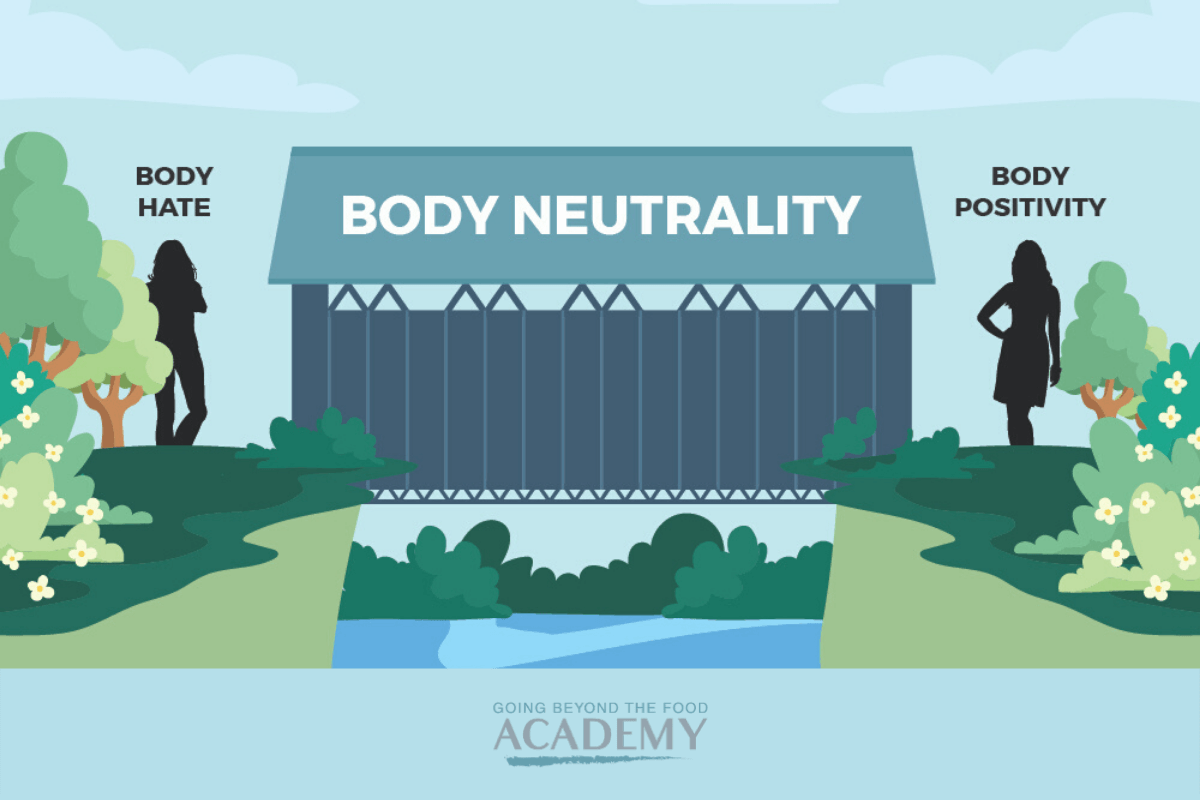I was inspired to write this article based on a community member question, “Which diet is best for my health? I need to lose weight to be healthy… right?”
I hope this article helps you determine what is the best diet for you! (Hint: It may not be what you think.) Here’s what we’ll cover in this article:
What does it mean to be healthy?
Does “obesity” cause one to be unhealthy?
Is health beyond dieting and weight loss possible?
What is a weight-neutral approach to health?
Sustainability and health beyond dieting
Who is an ideal candidate for weight-neutral approach to health?
Why It’s Hard to Change Your Beliefs About Weight and Health
The prevalent diet culture conditioned us to believe that thinner is better in all aspects of life including our health. Therefore, dieting is the answer to health so there has to be a “best diet” … right?
We’ve always heard that thin equals healthy, and that dieting is the way to a thinner body. It’s the same indoctrination that leads us into thinking that a thinner body is more attractive because it is associated with health.
What does it mean to be healthy?
We all grew up with the idea that health is the absence of illness. But the World Health Organization has a definition of health that’s different from what we’re all used to. WHO defines health as “a complete state of physical, emotional, and social well-being, not merely the absence of disease or infirmity.”
Good health is essential to being able to handle stress and live a long and active life. It doesn’t just refer to the absence of disease, but also to the ability to recover from illness, to adapt to life challenges in general.


Does “obesity” cause one to be unhealthy?
The keyword here is CAUSE. Before we can answer the question, we must first understand the difference between correlation and causation. For example, smoking is correlated with alcoholism, but it doesn’t cause alcoholism. However, smoking causes an increased risk of developing lung cancer.
For example, a research found that obesity does not affect the risk of having coronary heart disease and stroke “Metabolic status is relatively stable despite rising BMI”. (However, it does increase the risk of developing diabetes)
But if the question is, “Is obesity associated or correlated with health risks?” the answer would be yes. If the question is “Is obesity causing disease?” the answer would be no. That’s where the big difference lies.
Here’s where it gets interesting – one-third to three-quarters of people classified as obese are actually metabolically healthy. Being metabolically healthy means having your blood pressure, cholesterol, glucose levels, and other metabolic markers within the normal range. That’s me and millions of “overweight” women.
Is health beyond dieting and weight loss possible?
Yes, and scientific research proves it!
A 2016 study by researchers at UCLA studied 40,420 adult participants in the most recent U.S. National Health and Nutrition Examination Survey. Researchers looked at the participants’ health as measured by six accepted metrics (not including BMI). These metrics are blood pressure, cholesterol, triglyceride, glucose, insulin resistance, and C-reactive protein.
The study found that 47% of people classified as overweight by BMI and 29% of those qualified as obese were healthy based on at least five of those other metrics.
Meanwhile, 31% of normal-weight people were unhealthy by two or more of the same measures.
What is a weight-neutral approach to health?
A weight-neutral approach to health is based on the idea that your health status or risk level can’t be determined solely by your weight.
It acknowledges that your weight is determined by a complex set of genetic, metabolic, physiological, cultural, social, and behavioral determinants. Many of these factors are either difficult or impossible to change.
Instead of focusing on a weight-oriented outcome, weight-neutral programs teach you to take charge of the factors within your control. These factors include your thoughts and behaviors. Taking charge of these factors will help you improve your well-being, regardless of your weight.
Research have demonstrated the weight-neutral approach to health have significantly decreased body dissatisfaction, disordered eating, and depression. They’ve also increased sustainable, enjoyable self-care behaviors such as eating and moving well in the long term.
The Going Beyond The Food Method️ is a weight-neutral and non-diet health framework composed of eight core elements. Our health framework is grounded in holistic principles and functional medicine approach to health. It’s a five-step process that includes mindset, emotional regulation, mindfulness, body neutrality, and intuitive eating.
The method️ is based on four core pillars: Body Wisdom, Body Trust, Body Respect, and Body Neutrality.


Sustainability and health beyond dieting
The single most powerful advantage of a weight-neutral and non-diet approach like the Going Beyond The Food Method️ is sustainability. It helps you develop the ability to sustain health-promoting behaviors throughout your life.
Certainly, when it comes to health, consistency is significantly more powerful than short-term results.
A 2015 study systematically reviewed a weight-neutral and no-diet approach to health. It determined the overall effects on factors including weight, biochemical measures, food, activity, behavior, body image, and mental health.
- Weight stability (in 5 yrs)
- Improved biochemical markers
- Cholesterol, blood sugar, blood pressure, CRP
- Sustained healthy behaviors & Improvement in:
- Dietary quality
- Psychological states
- Disordered eating patterns
- Self-esteem
- Depression
Who is an ideal candidate for a weight-neutral approach to health?
Truly anyone! Individuals who’ll benefit most from this approach are:
- Chronic dieters
- Women who are overly concerned with weight and shape (a.k.a. body image issues)
- Those who are repeatedly trying to lose weight and restricting food for two years or more
- Women who have had enough of dieting and regaining the weight that they lost
- Women who are intuitive eaters
Why it’s hard to change your beliefs about weight and health
Your reptilian brain is the reason why it’s not easy to let go of beliefs. It’s the most primal part of your brain that has the survival instinct. It seeks to protect you from danger. Because the diet culture has programmed your reptilian brain into believing that fat people aren’t healthy, you’ve since associated health with thinness.
That’s why your approach to health must also include mindset and thought reprogramming tools to help you change your core beliefs and negative self-talk. That’s what we do first inside our Conquer & Thrive community… been there done that as they say.
You can view the methodology in more details here.
Get started with the weight-neutral approach to health
To help you get started with the weight-neutral approach to health and make peace with food and your body, I have created a free audio guide for you to know exactly what to do when you stop dieting, emotional eating, binge eating and body image issues. Claim your way to freedom now!
What does it mean to be healthy?
Good health is essential to being able to handle stress and live a long and active life. It doesn’t just refer to the absence of disease, but also to the ability to recover from illness, to adapt to life challenges in general.
Does “obesity” cause one to be unhealthy?
The keyword here is CAUSE. Before we can answer the question, we must first understand the difference between correlation and causation. For example, smoking is correlated with alcoholism, but it doesn’t cause alcoholism. However, smoking causes an increased risk of developing lung cancer.
Is health beyond dieting and weight loss possible?
Yes, and scientific research proves it!
A study found that 47% of people classified as overweight by BMI and 29% of those qualified as obese were healthy based on at least five of those other metrics. Meanwhile, 31% of normal-weight people were unhealthy by two or more of the same measures.
What is a weight-neutral approach to health?
A weight-neutral approach to health is based on the idea that your health status or risk level can’t be determined solely by your weight.
It acknowledges that your weight is determined by a complex set of genetic, metabolic, physiological, cultural, social, and behavioral determinants. Many of these factors are either difficult or impossible to change.
Who is an ideal candidate for a weight-neutral approach to health?
Truly anyone! Individuals who’ll benefit most from this approach are:
>> Chronic dieters
>> Women who are overly concerned with weight and shape (a.k.a. body image issues)
>> Women who are repeatedly trying to lose weight and restricting food for two years or more
>> Women who have had enough of dieting and regaining the weight that they lost
>> Women who are intuitive eaters
Why it’s hard to change your beliefs about weight and health
Your reptilian brain is the reason why it’s not easy to let go of beliefs. It’s the most primal part of your brain that has the survival instinct. It seeks to protect you from danger. Because the diet culture has programmed your reptilian brain into believing that fat people aren’t healthy, you’ve since associated health with thinness.


